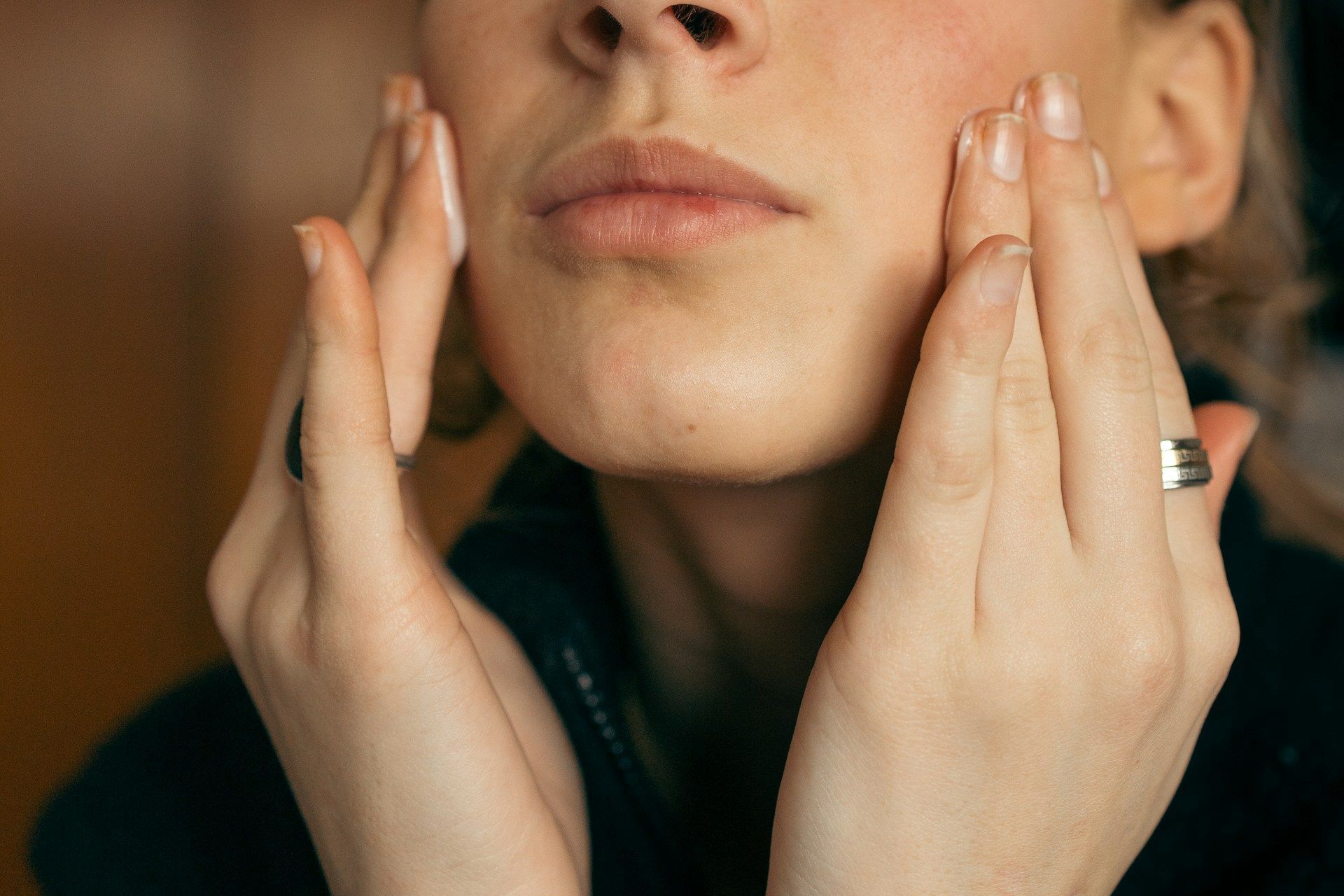How to Spot the Signs of Sleep Apnea with Dr. Cameron Kuehne

Sleep apnea is a common but serious disorder where your breathing is interrupted during sleep. These interruptions can last from a few seconds to a minute and may occur multiple times throughout the night. Understanding sleep apnea is essential because it affects not just your sleep quality but also your overall health. Dr. Cameron Kuehne and the team at The Center For Sleep Apnea and TMJ in Meridian specialize in identifying and treating this condition to help you lead a healthier life.
Many people with sleep apnea are unaware they have it. They might think their loud snoring is just a nuisance, but it's actually a sign of a bigger problem. The most common type, obstructive sleep apnea, happens when the muscles in the back of your throat relax too much and block your airway. This causes you to wake up briefly to resume breathing, often without even realizing it. These disturbances can leave you feeling tired and irritable during the day, even if you think you slept well.
Ignoring sleep apnea can have serious consequences for your health. It can lead to issues like high blood pressure, heart disease, diabetes, and even a shortened lifespan. Knowing the basics of sleep apnea and recognizing its symptoms are the first steps toward seeking the help you need. Dr. Cameron Kuehne is committed to educating patients and providing effective solutions to improve their quality of life.
What is Sleep Apnea? Understanding the Basics
Sleep apnea is a disorder that stops and starts your breathing repeatedly during sleep. The most common type is obstructive sleep apnea (OSA), which occurs when the muscles in the back of your throat relax too much. This relaxation narrows or closes your airway, cutting off your breathing for a brief period. Less common types include central sleep apnea, where the brain doesn't send proper signals to the muscles that control breathing, and complex sleep apnea, a combination of obstructive and central types.
Dr. Cameron Kuehne explains that these breathing interruptions usually last for about 10 to 20 seconds and can happen up to hundreds of times a night. These disruptions shift you from deep sleep to light sleep, resulting in poor quality rest. Over time, this can lead to a range of health problems. It's important to recognize that sleep apnea affects more than just your nights; it has an impact on your overall well-being and everyday life.
Common causes of sleep apnea include being overweight, having a large neck circumference, and having a family history of the condition. Other factors like smoking, nasal congestion, and use of alcohol or sedatives can also increase your risk. Understanding the basics of sleep apnea is the first step to identifying if you might be affected and seeking the right help to address it.
Common Symptoms of Sleep Apnea
Recognizing the symptoms of sleep apnea is crucial for getting the treatment you need. Dr. Cameron Kuehne highlights several key symptoms that you should look out for. While snoring is a common indicator, it's not the only symptom.
Nighttime Symptoms:
1. Loud Snoring: This is often the most noticeable symptom and is typically louder than normal snoring. It’s caused by the obstruction in the airway.
2. Gasping for Air: Waking up abruptly with a choking or gasping sensation is a red flag. This happens when your body responds to the lack of oxygen.
3. Restless Sleep: Frequent tossing and turning or waking up multiple times during the night can be a sign that your sleep is being disrupted by apnea events.
4. Dry Mouth or Sore Throat: Breathing through your mouth due to a blocked airway can leave your mouth dry or sore by morning.
Daytime Symptoms:
1. Excessive Daytime Sleepiness: Feeling overly tired during the day, no matter how early you go to bed or how long you sleep, can indicate poor quality sleep due to apnea.
2. Morning Headaches: Waking up with headaches can be linked to the drops in oxygen levels during the night.
3. Difficulty Concentrating: Trouble focusing or remembering things can also stem from the disrupted sleep caused by apnea.
4. Irritability and mood changes: Poor sleep can greatly affect your mood, leading to irritability, depression, or anxiety.
If you or someone you know exhibits these symptoms, it's important to seek guidance from a professional. Early recognition and treatment can greatly improve your quality of life and overall health.
Daytime Signs of Sleep Apnea You Shouldn't Ignore
Sleep apnea doesn't just disturb your nights; it leaves its mark on your daytime life as well. Dr. Cameron Kuehne emphasizes that there are several daytime signs that often go unnoticed but shouldn't be ignored. Recognizing these signs can be crucial in diagnosing and treating sleep apnea effectively.
1. Chronic Fatigue: One of the most telling signs of sleep apnea is feeling excessively tired during the day. This happens because your sleep is constantly interrupted, preventing you from reaching the deep, restorative stages of sleep.
2. Difficulty Concentrating: Struggling to focus on tasks or finding yourself easily distracted can be a sign that your brain isn’t getting enough rest. This can affect your performance at school or work and make even simple activities feel challenging.
3. Frequent Naps: If you always feel the need to take naps during the day, it might be because your sleep quality at night is very poor.
4. Mood Changes: Irritability, depression, and increased anxiety during the day can also be linked to sleep apnea. When your body doesn’t get enough quality sleep, it can affect your emotional well-being.
5. Memory Problems: Difficulty remembering things or finding that you’re more forgetful than usual can be another sign of sleep apnea. Lack of restful sleep affects your brain's ability to process and store information.
These signs, although they may seem minor or unrelated, can significantly impact your quality of life. Recognizing them early allows for timely intervention and treatment.
When to Seek Help: Guidance from Dr. Cameron Kuehne
Knowing when to seek help for sleep apnea is important for your health and well-being. Dr. Cameron Kuehne at The Center for Sleep Apnea and TMJ advises that you should consult a healthcare professional if you or a loved one exhibits any of the symptoms mentioned above.
Reasons to Seek Professional Guidance:
1. Persistent Symptoms: If the symptoms of sleep apnea persist despite lifestyle changes like losing weight or changing your sleep position, it’s time to seek help.
2. Health Concerns: Sleep apnea is linked to several serious health issues, including high blood pressure, heart disease, and diabetes. If you have any of these conditions or are at risk, getting evaluated is crucial.
3. Impact on Daily Life: When daytime fatigue, irritability, or memory problems start affecting your ability to function normally, it’s an indication that professional help is needed.
4. Feedback from Others: Often, bed partners or family members notice signs of sleep apnea, like loud snoring or gasping for air, before you do. Take their observations seriously and talk to a doctor.
Dr. Cameron Kuehne can perform evaluations and recommend effective treatments to manage sleep apnea. Addressing sleep apnea can greatly improve your health and quality of life.
Is Sleep Apnea Affecting You?
Sleep apnea is a serious condition that can disrupt your sleep and impact your entire day. Recognizing the symptoms and knowing when to seek help are the first steps toward better health. Dr. Cameron Kuehne and the team at The Center for Sleep Apnea and TMJ are dedicated to supporting you on this journey.
From understanding sleep apnea basics to identifying key signs and symptoms, awareness is crucial. Don’t ignore the daytime signs that signal something might be wrong. Persistent fatigue, mood changes, and concentration problems can all be indications that sleep apnea is affecting your life.
If you or someone you love is experiencing these symptoms, it's important to take action. Dr. Cameron Kuehne offers advice and effective treatments to help you get the restful sleep you need. Contact our
sleep apnea clinic in Meridian today to schedule a consultation and start your journey toward better sleep and improved health.










